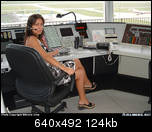Men and Women - Who is Smarter?
 When I first started managing people in my career, I was a computer operations shift supervisor running the banking systems for several of the smaller banks in Canada. I had a group of men and women doing the same job as operators (this was a mainframe environment in a large centralized services company. Computing was different those days. It was 1981 to 1983 and the PC was only just being invented at that time and was not a serious business machine for several years yet. Everything was about mainframes. We even wore white lab coats in the computer center.).
When I first started managing people in my career, I was a computer operations shift supervisor running the banking systems for several of the smaller banks in Canada. I had a group of men and women doing the same job as operators (this was a mainframe environment in a large centralized services company. Computing was different those days. It was 1981 to 1983 and the PC was only just being invented at that time and was not a serious business machine for several years yet. Everything was about mainframes. We even wore white lab coats in the computer center.). One thing I noticed that I found interesting was that women thought differently and functioned differently than men. There were a number of different kinds of tasks to be done at all times, and they worked as teams on each shift and could share the tasks any way they wanted to at the time. I could easily see which ones the women gravitated to and which ones the men preferred. I found that all the women were better suited to working on several things at once. They could multi-task much better than the men. They would keep track of 15 jobs running at the same time, manage the scratch tape pool, figure out which reports had been run, which ones had not run, which mainframes were up and which ones were down, which tape drives and disk drives (in those days a disk drive was a machine about the size of a dishwasher) were up and online and which were down and waiting for service, which vendor had been notified of equipment down and when they expected to arrive to fix it, etc.
One thing I noticed that I found interesting was that women thought differently and functioned differently than men. There were a number of different kinds of tasks to be done at all times, and they worked as teams on each shift and could share the tasks any way they wanted to at the time. I could easily see which ones the women gravitated to and which ones the men preferred. I found that all the women were better suited to working on several things at once. They could multi-task much better than the men. They would keep track of 15 jobs running at the same time, manage the scratch tape pool, figure out which reports had been run, which ones had not run, which mainframes were up and which ones were down, which tape drives and disk drives (in those days a disk drive was a machine about the size of a dishwasher) were up and online and which were down and waiting for service, which vendor had been notified of equipment down and when they expected to arrive to fix it, etc.
The men could cope, but it wasn't as easy for them, so they didn't prefer that constant switching from task to task across many different types of things all the time, and the constant interruptions from one thing to another. Instead, the men tended to gravitate toward the in-depth thinking required for problem solving. When a job failed, a woman would typically not want to spend the time and effort to try to figure out why, so she would hand it over to a man who would then drop anything else he was working on and dive in. He might spend a half hour or an hour creating a hex dump and running traces, or whatever diagnostic activities were needed to drill down into the details and finally figure out the bug in the program or the system or whatever. He would finally discover that one particular field had alpha data going into a numeric field and there was no error management routine clause in the program to handle it, or a buffer had over-flowed, or an error message was the wrong error message and the real problem was something different, or some such similar problem. He could then usually fix the problem, rerun the job and then go on to the next problem. As I said before, the computer field was much different back then - but that is another, longer, different discussion.
I saw clear distinction along gender lines. Men preferred in-depth logical analysis and problem-solving - but one problem at a time. Women preferred light, shallow work, but multi-tasked across many things at once. I saw this repeated over and over with many women and many men over the 2 years I worked there.
Men would not get interested in just running a bunch of jobs and checking them off as they completed, etc. Women would not get interested in learning to read hexadecimal memory dumps and do hex arithmetic, to perform in-depth problem solving.
I came to believe that perhaps women were better suited to jobs such as secretarial work or nursing or possibly traffic controller, where there is a lot of multi-tasking and managing many un-related facts at once and fast switching between different discrete activities. And men seemed better suited to jobs where they could sit down with just one tricky problem at a time and go deep to logically solve it. Women worked shallow but wide, men worked narrow but deep. One is not better than the other. There is no relative "value" associated with one activity type over another. Both have their uses and applications. It was just a very clear trend I noticed. They could each do either kind of work to a degree, but each gender did have it's preference and comfort zone. The pattern was obvious, repeatable, and predictable.
One is not better than the other. There is no relative "value" associated with one activity type over another. Both have their uses and applications. It was just a very clear trend I noticed. They could each do either kind of work to a degree, but each gender did have it's preference and comfort zone. The pattern was obvious, repeatable, and predictable.
Now things in the computer industry are different, and Women and Men have both changed slightly, they are less polar opposites than 25 years ago, but still there are differences in how the genders think and operate.


0 Comments:
Post a Comment
<< Home